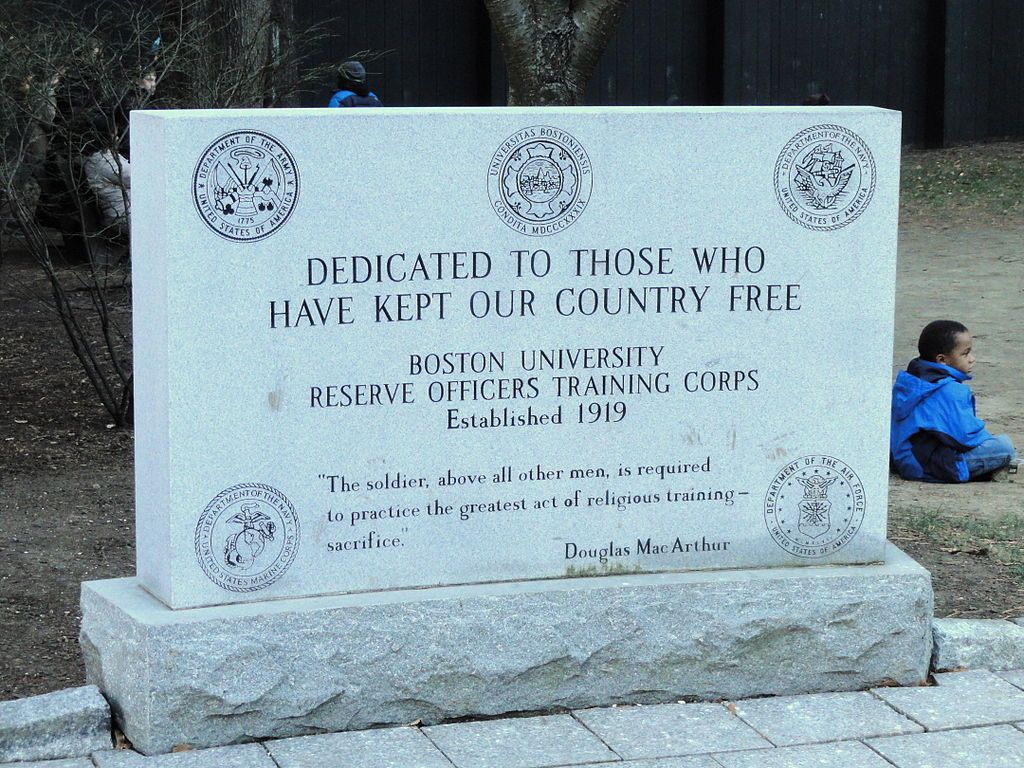But Without Debt, Who Will Fight Our Wars?
Usually politicians deny that there's a Poverty Draft in the "All-Volunteer Military." But even a meager amount of student-debt forgiveness has the mask flying off.

Edited by Sam Thielman
I WASN'T PLANNING on writing today [No one was planning on Spencer writing today.—Sam.], but Rep. Jim Banks (R-Ind.) had to warn that the nation would be imperiled by alleviating some of the debts choking the working class:
Student loan forgiveness undermines one of our military’s greatest recruitment tools at a time of dangerously low enlistments.
Banks means that economic desperation is a driver of recruitment in the "All Volunteer" military. Enlistment offers tuition assistance and loan repayment benefits, which is to say the prospect of debt-free college, which is to say a path to the middle class. In 2019, the Army surprised itself by surpassing its recruitment goals. Its chief recruiting officer, Maj. Gen. Frank Muth, said student debt explained it, according to Army Times' write-up:
“One of the national crises right now is student loans, so $31,000 is [about] the average,” Muth said. “You can get out [of the Army] after four years, 100 percent paid for state college anywhere in the United States."
I was once stuck at Bagram Airfield in Kabul for over a week in 2010 waiting on embeds elsewhere in Afghanistan that didn't pan out. When I needed to file stories back to WIRED, I would pass by Bagram's education center (possibly I filed in the education center? This is twelve years ago and I recall not always filing in the Morale Welfare and Recreation building) where troops could take classes, do test prep, earn college credit and consult with tuition advisers. My hazy memory is the education center was about as packed as the gym and the dining facility. And it was close to the stalls pushing loans on troops to pay for a motorcycle or an F-150. It was around there that I would get into the conversations that led to this story, about how the war made zero fucking sense to enlisted personnel at Bagram who wanted to say that to someone who would report it. Ask yourself if their judgment holds up better or worse than other interviewees of mine during that trip, like Generals Petraeus and J.C. Campbell.
Debt is fundamentally a form of unfreedom. The expressions of profound relief on display by those who just had their student debts obliterated by President Biden testify to it. They are more materially free than they were before this week. They were supposed to feel this way only when firing an AR-15 or, I don't know, beholding a bald eagle in flight. But freedom, despite the airy facsimile of it offered by official American ideologies, has a material basis. If you want to be free, welcome to socialism. Let's build.
I'm about halfway through Ages of American Capitalism: A History of The United States by Jonathan Levy. (David Graeber's Debt is next.) The recurrence of this debt-as-unfreedom lesson is as conspicuous throughout American history – "I desire to ask him where, in law or in morals, he can find justification for not protecting the debtors when the act of 1873 was passed, if he now insists that we must protect the creditors" someone once said – as it is thoroughly excluded from the dominant, sloganistic notion of Freedom that receives civic worship. That's because the United States, as demonstrated by Levy (and, for that matter, Rep. Banks) is designed to provide for those who inflict or benefit from this and other forms of unfreedom.
Anyway, the same guy who asked us to please consider the interests of our poor beleaguered Poverty Draft before we celebrate canceling a bit of student debt serves on the House Armed Services Committee. Now we know what people like him mean when they say ours is an All-Volunteer military.

